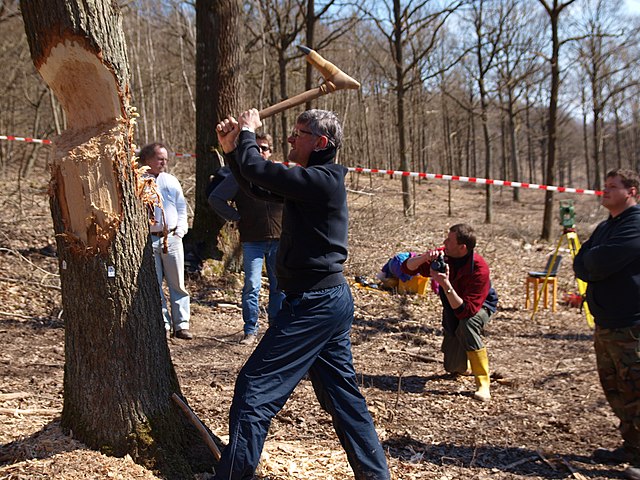Experimental archaeology is a field of study which attempts to generate and test archaeological hypotheses, usually by replicating or approximating the feasibility of ancient cultures performing various tasks or feats. It employs a number of methods, techniques, analyses, and approaches, based upon archaeological source material such as ancient structures or artifacts.
Experimental tree felling with reconstructed adzes of the Linear Pottery culture for the analysis of stress marks on the adze blades and ghost lines on the tree stump and the timber in comparison with marks on archaeological finds
Creating a wall of mud in the Viking style.
Butser Ancient Farm's reconstruction of a Stone Age house found in Hampshire, UK.
Experimental medieval forge
Butser Ancient Farm is an archaeological open-air museum and experimental archaeology site located near Petersfield in Hampshire, southern England. Butser features experimental reconstructions of prehistoric, Romano-British and Anglo-Saxon buildings. Examples of Neolithic dwellings, Iron Age roundhouses, a Romano-British villa and an early Saxon house are on display. The site is used as both a tourist attraction and a site for the undertaking of experimental archaeology. In this latter capacity, it was designed so that archaeologists could learn more about the agricultural and domestic economy in Britain during the millennium that lasted from circa 400 BCE to 400 CE, in what was the Late British Iron Age and Romano-British periods.
Butser Ancient Farm's reconstructed Iron Age village.
The Stone Age Horton House
The Little Woodbury roundhouse
The Moel y Gerddi roundhouse








